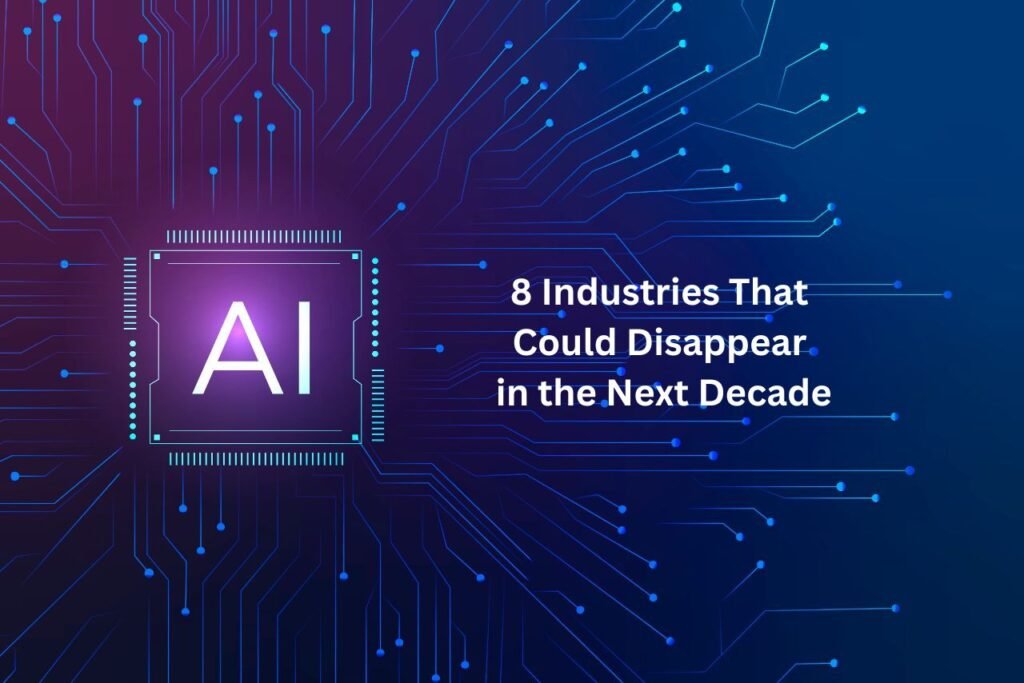In 1910, the U.S. had nearly 20 million horses, according to Data Paddock. By 1974, that number had dropped to under 1.6 million. The reason? New technology — the automobile — disrupted the transportation industry. As cars replaced horses, they shifted from a necessity to a luxury. This change impacted breeders and farriers negatively, but it created opportunities for auto mechanics and manufacturers. Lets read more about industries that could disappear in the next decade due of AI.
1. Delivery and Taxi Drivers
Fifteen years ago, tech companies began testing self-driving cars, sparking predictions that human drivers would be obsolete by 2020. That didn’t happen. However, it doesn’t mean it won’t.
Self-driving technology keeps advancing, and whether in 10 or 20 years, it’s difficult to see millions of Americans still working as drivers once autonomous vehicles prove safer than humans.
2. Travel Agencies
Travel agencies are increasingly becoming a luxury service for the wealthy. Busy executives can simply outline their preferences and let an agency handle the rest.
While bespoke travel coordinators will remain, they won’t cater to middle-class travelers. In today’s world, where platforms like Skyscanner and Airbnb allow people to find the best deals themselves, the demand for traditional travel agencies has declined.
3. Newspaper and Magazine Publishing
Printed newspapers and magazines won’t disappear entirely, but they’ll become more niche and consolidated. Publications like The New York Times and The Washington Post will likely continue printing, driven by prestige and nostalgia. They may serve as a “nice touch” outside boutique hotel doors, but it’s unrealistic to expect them to regain the circulation they had in the 20th century.
4. Coal Energy and Mining
Few industries face the negative press and reputation of coal. According to the US Career Institute, coal ranks as the fifth fastest declining industry, which surprises no one. Cleaner energy alternatives, even among fossil fuels, offer better options.
5. Data Entry
In a world where nearly all data is collected digitally and AI can analyze it instantly, why would companies continue paying humans for manual data entry?
While exceptions may exist, data entry is another low-skill industry set for disruption and likely to disappear.
6. Low-End Customer Support
Sometimes, customers still need to talk to a knowledgeable human. However, as AI interfaces become smarter and more human-like, they will increasingly handle the initial interactions between customers and companies.
7. Low-End Legal Research
Artificial intelligence is also targeting white-collar jobs in the legal profession. As AI becomes smarter and more reliable, it will increasingly crawl legal databases to access case law, precedents, and other essential legal research. This technology allows a skilled attorney to strengthen their case without needing to hire a small army of paralegals and researchers.
8. Freelance Writing
Artificial intelligence synthesizes data effectively, and its writing skills will keep improving. However, no amount of data can replace first-hand experience. Relying on AI means we lose the value of teaching from lived experiences. Most “new” content will likely come from recombining old ideas rather than offering fresh insights.
Also Read About –
China Makes Major AI Breakthrough
UN experts warn: AI development cannot be left to market whim
